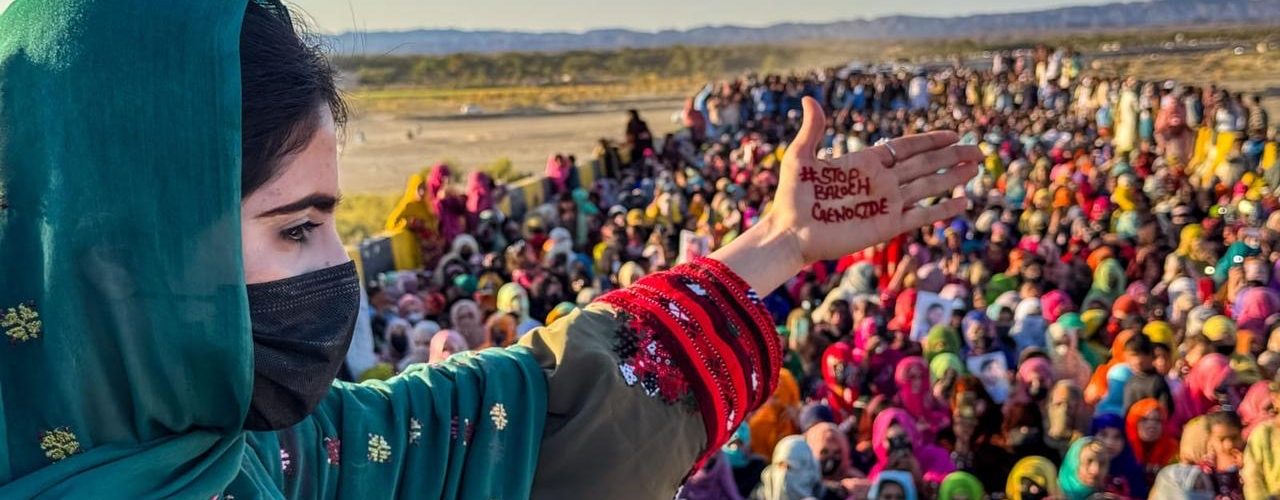Balochistan, the land of beauty, possesses rich and diverse mineral resources. Its barren, rugged, and sunburned mountains, following water, icy valleys, chirping birds, beautiful flowers, and lush greenery all add to its charm. This land is not just a land but a mother to its brave and blood-shedding sons. No matter how barren and dry it may seem, it holds deep value.
Selig Harrison, in his book The Afghanistan Shadow, states that it is only Balochistan’s rich resources that make it an eyesore for colonial and imperial powers—otherwise, no one would wage a bloody war over this barren and dry land.
Yet, the Baloch—the brave soldiers, the missing sons, the helpless daughters, the crying mothers and sisters, the weak and frail fathers—still say: “O homeland! Even your dry branches hold such grace that nowhere else could they ever look so fine.”
Throughout history, Balochistan has not just been a land of today, but a land of centuries—rich with a legacy of resistance and resilience. Time and again, Balochistan has faced bloody wars, losing its beloved and brave sons who never looked back, never felt fear,who never gave up and willingly sacrificed their lives for freedom.
It is Balochistan that has given birth to thousands of courageous and bold warriors who fought against the Mughals, Persians, the imperial British, and now the colonial forces (Pakistan) occupying Balochistan. The Baloch have endured countless tragedies, including those in 1666. In 1928, under the leadership of Dost Muhammad, they stood against the Iranians and Shah Shuja. In 1839, Mehrab Khan, with only a small Army, resisted the British with unmatched bravery and never surrendered.
Mehrab Khan once declared: “His ancestors have shed their blood for this land—how can he turn away from his responsibilities? He prefer death over slavery.”
Even today, the Baloch continue to stand like mountains against the colonial and fascist forces of the Islamic State.
Unfortunately, Balochistan, which declared its independence on August 11, 1947, was forcefully occupied by the colonizer state of Pakistan on March 27, 1948. Since then, the region has witnessed several insurgencies and conflicts centered around the struggle for freedom, liberty, identity, culture, and language. The Baloch people have been brutally oppressed, their rights denied, and their vast natural resources plundered by the occupying forces.
Balochistan has endured numerous military operations, including what many describe as a Baloch genocide, widespread enforced disappearances, and extrajudicial killings of innocent civilians. Despite covering 44% of Pakistan’s total land area and being rich in natural resources—offering significant strategic value—the Baloch people remain deprived of their most basic rights.
Today, the Baloch have little left but thousands of posters bearing the faces of their missing loved ones. The number of enforced disappearances continues to grow with each passing day. In the 1970s, under the regime of Zulfiqar Ali Bhutto, the Pakistani state began its notorious policies of enforced disappearances and the so-called “kill-and-dump” strategy. One of the earliest and most tragic cases was that of Asadullah Mengal—son of prominent Baloch leader Attaullah Mengal—who, along with his friend, was abducted. To this day, their fate remains unknown, as their bodies were not returned to their families.
These barbaric policies intensified in 2009 during the rule of General Pervez Musharraf. Victims of enforced disappearances were often killed in secret torture cells, and their bodies dumped in remote areas such as jungles—an attempt to erase both evidence and identity.
Thousands of Baloch students, activists, and journalists have been abducted by the Pakistani Army. None of them have been returned; instead, their dead bodies are handed over to their families. Thousands of mothers and sisters have been waiting for their loved ones to return from Pakistan’s dungeons.
Families, who find the tortured dead bodies of their loved ones are considered lucky in this region. When families protest on roads and streets to ask the state about the whereabouts of their loved ones, they are arrested by police, who use fire, shelling, and tear gas against them. Protesters are threatened, and the state uses its power to silence their voices and struggles.
However, this brutality has taught us to stand strong and continue our political struggle. A wave of violence has made it hard for people to breath in this region.
Here lies the responsibility of international institutions, which were established to protect nations from genocide and to act upon international laws during wars and conflicts. We, the Baloch, urge international institutions to hold Pakistan accountable for its mass atrocities in Balochistan, as they have failed to stop the state’s war crimes.








Add comment